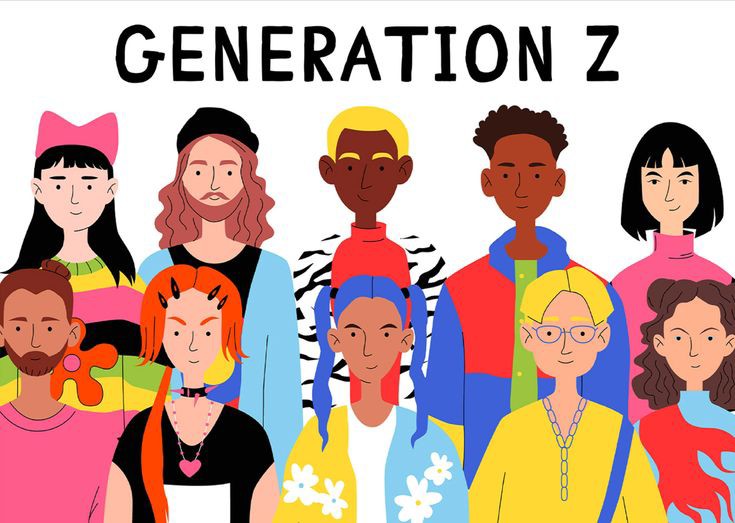The concept of generations is everywhere and impossible to escape. We all belong to one (for most people reading this, that will be Gen Z).
We are dictated by the laws of society to deride those we do not belong to (Millennials, Baby Boomers), and probably spend a substantial amount of time trying to shake off the stereotypes of our own generational label (sensitivity, social media obsession).
Generations are not simply a naming system for those of a similar age, but rather a social category: “a concept that allows “youth culture” to be redefined periodically”. But it seems to me that these labels have permeated much deeper than trend cycles or nostalgia for a decade passed.
Even if we don’t think we believe them, they affect how we perceive and interact with those within our generational bubble, as well as those outside it, creating arbitrary divides and fostering asinine assumptions.
There is little point in me explaining how baseless these categories are: you likely do not truly believe in them yourself. You might be aware that the claim that Generation Z are more ethical than previous generations is completely unfounded, as is the idea that people get more conservative as they get older.
Yet, many of us still rely on these terms in everyday conversation and identify strongly with our generation – be that ironically or unconsciously. Trying to write this piece without using ‘we’ to refer to my own generation is a conscious effort. Even when conducting my research, an article I read in The Atlantic critiquing the concept of generations was immediately followed by a suggestion that I read about ‘The Band That Invented Millennials’.
It is human nature to lump ourselves into groups, providing us with structure and social identity. However, belonging to one group inherently alienates another: I fear that by focusing so much on how shared experiences can bring us closer, we forget that disparate ones can also be a conduit for connection.
When I first came to Trinity I didn’t know anyone – so realising that someone I’d just met grew up near me or knew an old friend was comforting. Yet it was meeting people with completely different upbringings, accents and experiences from me that was infinitely more exciting and has provided the basis for most of my friendships.
I doubt anyone consciously chooses to distance themselves from others based on the ‘generation’ they fit into (especially considering two people born a year apart could technically be classed in different generations), but it would be surprising if these labels had not wormed their way into our psyches considering their prevalence in the media and marketing. Each week a new popstar is heralded as ‘the voice of a generation’.
Politicians constantly talk about how the youth will save the planet (whilst actively avoiding implementing policies that would do so). Do generational labels stop personal growth? Defined by the year we are born rather than the actual passing of time, it becomes easy to live in a state of stagnation. Boomers don’t have to save the world (Gen Z will do that!) and millennials are doomed to eat avocado toast for the rest of their lives.
Obviously, individuals in each generational category differ greatly, and few people fit the stereotype they are assigned. But the truly insidious problem with generational categories goes further than this. The reason people born within certain time periods are assumed to share some qualities in the first place is because they experience the same historical events at similar times in their life.
Millennials came of age as the world reeled post 9/11. They were hit with the financial crash as they entered the workforce. Gen Z have grown up with (and on) the internet. I doubt swathes of people believe that every member of Generation Z is a ‘snowflake’, or that all millenials are bad at saving money, but it does seem to be a common theory that these groups share something important in their experience of key historical events.
However, no two people experience history in the same way. As Philip Cohen writes: “people experience history differently based on their backgrounds – Black people vs. White people, immigrants vs. natives, men vs. women, children with vs. children without iPads. So throwing everyone together by year of birth often misses all the glorious conflict and complexity in social change.”
Ultimately, when shared experiences and labels are scrutinised, they only serve to highlight our differences. There is no one history that members of a generation share, just as there is no one trait that sets them apart from another generation (perhaps this is why so many are convinced they were ‘born in the wrong generation’).
This is true also within the microcosm of Trinity, where we delight in dividing ourselves into as many groups as possible and doling out stereotypes. Freshers are over-eager and probably spending too much time at Tramline. Business students are raging capitalists. ‘Arts Block Student’ is synonymous with ‘owner of Doc Martens’.
However, when this goes beyond satirical separation, such as we do with generational labels, we lose track of the individuality that forms deeper connections than a shared decade ever could.







